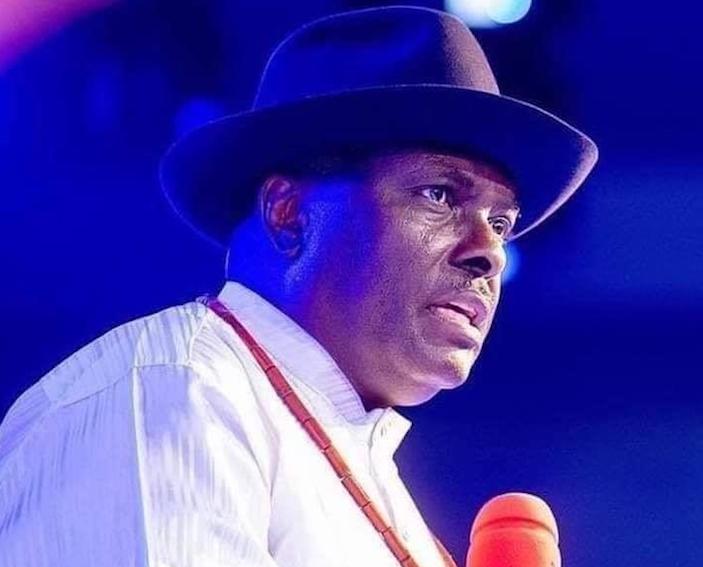The presidency has refuted reports that former Delta State governor, Chief James Ibori was granted presidential pardon by President Bola Tinubu on June 12, Nigeria’s Democracy Day celebration.
There were viral reports that Ibori who is a strong ally of the president was granted presidential Pardon but the presidency did not want to make it public.
Speaking with TheScrutinyNG, a media aide to the president said there was nothing of such.
” There was nothing like that. All the names of those given national honours were published, including those pardoned. Even when errors were made in the names of the posthumous awardees, a statement was issued to correct. So, the issue of Chief Ibori getting presidential pardon is news to me. There was nothing like that”.
Also speaking, a Senior Advocate of Nigeria who asked not to be named, said given the provisions of Nigeria’s constitution, a presidential pardon is not needed in Ibori’s case.
He said “Let us look at the necessity and validity of a presidential pardon in Ibori’s case, given the specifics of Nigeria’s Constitution and the fact that his conviction occurred in the UK. Let’s break this down clearly:
“The President of Nigeria Has No Authority Over UK Convictions.
The Nigerian president’s pardon power under Section 175 of the 1999 Constitution applies only to Nigerian convictions, federal or state offenses”.
“A UK conviction is outside Nigeria’s jurisdiction, meaning the president cannot legally pardon it just as the UK monarch/prime minister cannot pardon a Nigerian conviction”.
” Section 182(1)(e) Disqualification Expires After 10 Years.
This section bars someone from running for president if they have been convicted of a crime involving dishonesty or imprisonment for at least 10 years unless 10 years have passed since the conviction. Even without a pardon, Ibori’s conviction no longer disqualifies him after a decade. A pardon would be redundant in this context”.
” Is a Pardon Even Needed? If the conviction was in the UK, it has no legal bearing on Nigerian eligibility unless Nigerian law explicitly recognizes foreign convictions (which it generally doesn’t for disqualification under Section 182)”.
“If the conviction was in Nigeria, the 10, year rule already removes the disqualification so a pardon is unnecessary unless for symbolic reasons”.
“So, the President’s Pardon is Irrelevant in Ibori’s case. For a UK conviction: Nigeria has no authority to pardon it. For a Nigerian conviction: After 10 years, the disqualification automatically lapses under Section 182(1)(e), making a pardon pointless” the senior lawyer said.

